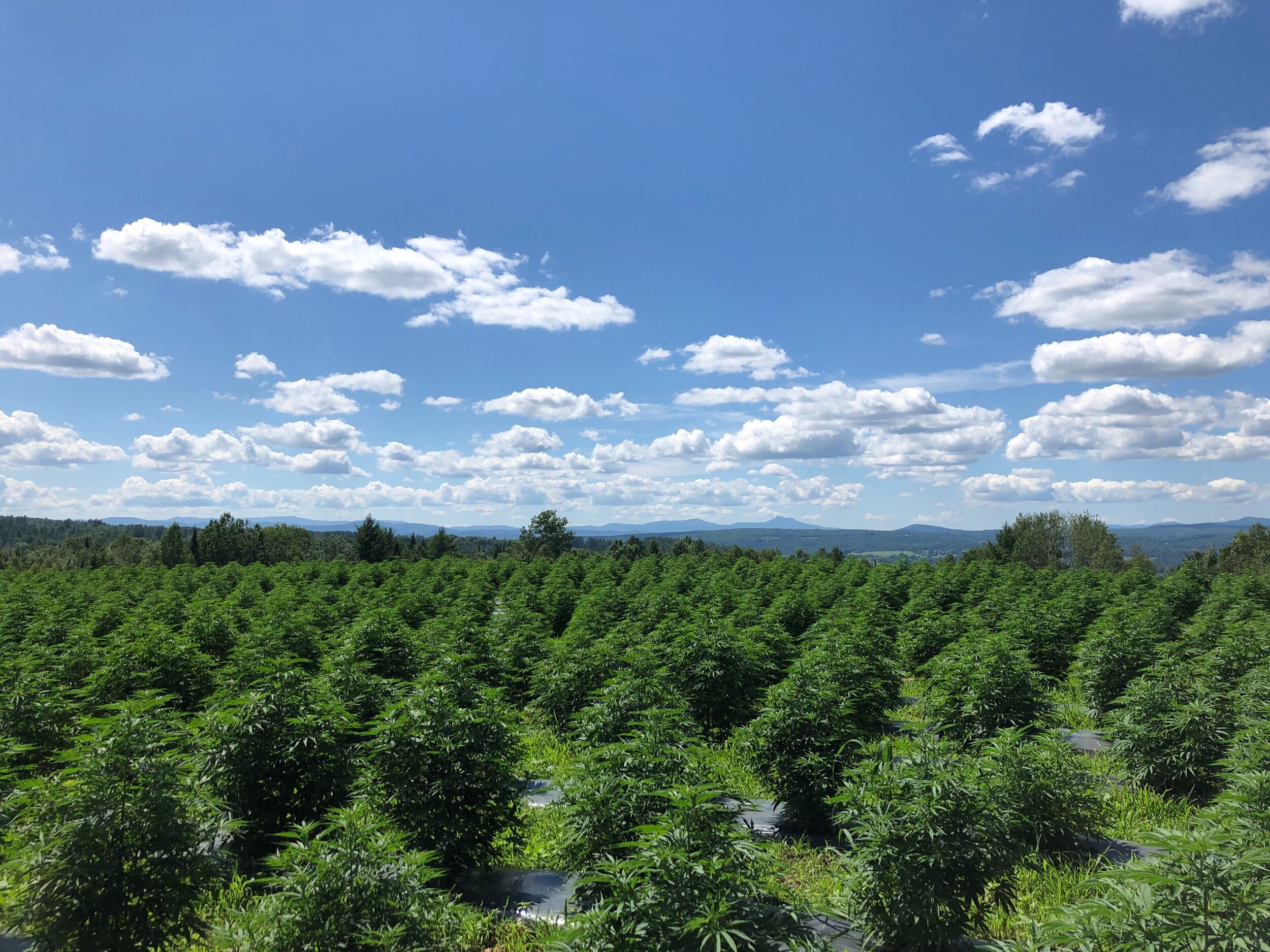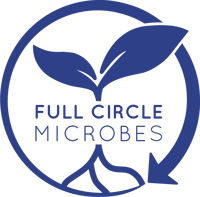
Wintermute Case Study
Across the United States, the agricultural industry consumes over $20 billion in fertilizer while generating more than 1.04 billion tons of wasted plant biomass. Combined, these practices produce over 109 million metric tons of CO2 equivalent greenhouse gas emissions, harming the environment and wasting valuable nutrients contained in the leftover biomass.
Vermont-based Full Circle Microbes and Wintermute Cannabis Collective began working together in 2019 to demonstrate the efficacy of recycled biomass as a fertilizer substitute that disrupts this cycle of waste to the benefit of farmers and the environment.
Using the Full Circle Microbes proprietary combination of bacteria and fungi, Wintermute turned their leftover stalks and waste biomass into a bioavailable nutrient source in a matter of weeks.
The data collected through this pilot showed that plants treated with inoculated hemp waste produced harvest yields that were 9-16% higher than those receiving the standard nutrient mix.
These results show great potential to help farms save money and increase yield while helping the environment and are detailed in our case study.
These data illustrate that treating hemp plants with inoculated hemp increased the harvest yield by 9 and 16%, respectively.
Environmental Impact
Where others see waste, we see great potential. When treated as waste, organic matter produces methane and CO2, contributing to climate change and a broken system of wasting natural and financial resources.
When treated as a resource, the nutrient potential of leftover organic matter can be unlocked by the right microbial communities and provide tremendous value to farmers and our planet.
Environmentalism is core to our company’s motivations and we’re excited to build sustainability into the foundation of the rapidly growing hemp and cannabis industry. To measure our environmental impact, we calculated the greenhouse gas emissions associated with the production and application of conventional fertilizer compared to our organics recycling process as well as traditional composting.
Growers using Full Circle Microbes to recycle biomass can reduce their per acre GHG emissions up to 98% vs synthetic fertilizer and burn pile disposal.
The above shows a comparison of common nutrient management and disposal practices compared to the Full Circle Microbes biomass recycling technique.
Featured Articles
Environmental Sustainability in the Cannabis Industry
National Cannabis Industry Association, Oct 2020
"Utilizing a microbial inoculant specifically designed for breaking down cannabis plant matter will help growers repurpose their leftover biomass as a fertilizer, reducing their fertilizer cost, waste removal costs, while also promoting higher plant yields."
Full Circle Microbes Converts Hemp Waste Into High-Yield Fertilizer
Seven Days, Sep 2020
" ‘...every plant we inoculated outperformed the control group. It was definitely surprising.’ And lucrative. The hemp plants treated with the experimental microbial blend generated a 9 percent higher yield than the plants treated with only conventional fertilizer. And the plants that received both fertilizers had a 16 percent higher yield than the control group.”
Full Circle Microbes: Transforming Hemp Waste Into Gold
Heady Vermont, Apr 2020
“Charles Smith, co-founder of Full Circle Microbes, sees great opportunity in agricultural settings where organic waste is generated in the same place as a concomitant need for fertilizer or some other nutrient source. In fact, that’s exactly the space his business inhabits in the ecosystem of Vermont’s hemp cultivation community.”
Supported by
National Science Foundation
Full Circle Microbes was honored to receive a Phase I SBIR grant from the NSF supporting our R&D efforts and our commitment to environmental impact.
CleanTech Open Accelerator
In fall 2020, Full Circle Microbes completed the CleanTech Open accelerator, the largest and longest-running clean technology accelerator in the US.








